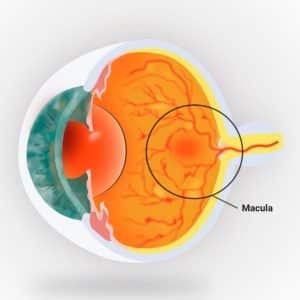
SURPRISING LINKS BETWEEN STRESS AND THE EYES
Stress can interfere with your sleep, skin and digestion. But did you also know it can affect your eyes?
Your eyes undergo changes such as increased intraocular pressure (IOP) when you’re stressed or anxious, whether for a short time or on a regular basis. These changes are often temporary but it’s important to know how stress can affect your eyes, especially if you have glaucoma or an ocular surface disease such as dry eye.
The link between stress and the eyes is not fully understood, but here’s what we know: When we feel stressed, our body releases hormones called cortisol and adrenaline. These hormones prepare our bodies to respond to perceived threats. You might recognize this as the “fight or flight” reaction. Adrenaline, for example, causes our pupils to dilate so that we can more clearly see possible threats.
Over time, high levels of these hormones can lead to:
- Elevated eye pressure
Brief changes in eye pressure aren’t necessarily harmful and you may not even notice them. But over a long period of time, changes in eye pressure can damage the optic nerve. This is especially true if you have the most common form of glaucoma, known as primary open-angle glaucoma. Glaucoma is a leading cause of blindness for people over age 60, so it’s important to get regular eye exams as you age.
- Sensitivity to light
When you’re stressed or anxious, you might notice that bright lights hurt your eyes more than usual or make it harder to see. This is known as photophobia. While it’s often just caused by stress, light sensitivity can sometimes signal a more serious condition. Let your eye doctor know if you experience this on a regular basis.
- Eye twitching
Do your eyelids spasm when you’re stressed? Eye twitching is a fairly common reaction to stress that’s made worse by caffeine and poor sleep. The good news is that eye twitching is usually harmless and often goes away on its own.
- Blurry vision
Stress can make objects and people appear slightly out of focus. Middle-aged people may notice that anxiety worsens their presbyopia (difficulty seeing objects close up). During extreme stress, such as a panic attack, hyperventilation can cause blurry vision due to an imbalance of oxygen and carbon dioxide in the body.
- Eye strain
Though eye strain can have many causes (including prolonged screen time), it can also be brought on by stress and anxiety. Try the “20-20-20” rule to give your eyes a rest when you’re reading or staring at the computer: Set a timer for 20 minutes to remind you to shift your gaze to objects at least 20 feet away for 20 seconds or more.
- Tunnel vision
Extreme anxiety can temporarily block your peripheral (side) vision and make you feel like you can only see objects directly in front of you. If this lasts a long time or happens on a regular basis, tell your eye doctor. Chronic tunnel vision can sometimes be a sign of more serious eye conditions, such as end-stage glaucoma.
- Very dry or very wet eyes
Either change can be caused by your body’s response to stress. If dry eyes are the problem, try these tips.
- Eye floaters
Though stress doesn’t cause floaters, it can lead to heightened awareness of tiny spots floating in your field of vision. If you struggle with stress or anxiety and experience any of these eye changes regularly, schedule a comprehensive eye exam with Eye Associates of South Texas. Your ophthalmologist can help relieve uncomfortable eye symptoms and treat any underlying conditions. Source: aao.org

 Previous Post
Previous Post Next Post
Next Post


